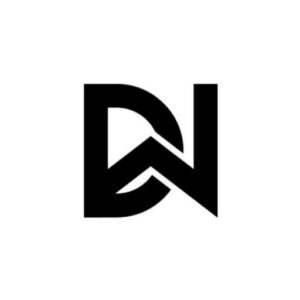Introduction
Digital marketing has transformed how businesses connect with their audiences. With rapid technological advancements, consumer behavior shifts, and increasing personalization, the future of digital marketing promises both challenges and opportunities. In this blog, we’ll explore emerging trends, new technologies, and actionable insights shaping the next phase of digital marketing.
1. The Evolution of Digital Marketing
- Past Decade of Digital Marketing: From simple banner ads to AI-powered personalized experiences.
- Technological Drivers: The role of artificial intelligence, big data, and social media in transforming strategies.
Key milestones:
- Emergence of programmatic advertising.
- Growth of influencer marketing.
- Domination of mobile-first approaches.
2. Key Trends Defining the Future of Digital Marketing
a. Artificial Intelligence and Machine Learning
AI will be the backbone of digital marketing, enabling automation, personalization, and predictive analytics.
- Chatbots: AI-driven chatbots will handle more customer interactions, improving efficiency.
- Personalized Experiences: AI can tailor content, ads, and recommendations to individual users in real-time.
- Predictive Analytics: Marketers will use AI to predict trends, customer behaviors, and campaign outcomes.
b. Voice Search and Conversational Marketing
- The rise of smart assistants like Alexa and Google Assistant is reshaping search behavior.
- Voice Search Optimization: Marketers will optimize for conversational queries and natural language.
- Conversational AI will power dynamic, real-time customer interactions.
c. The Metaverse and Virtual Experiences
- What is the Metaverse? A shared virtual space combining augmented reality (AR) and virtual reality (VR).
- Opportunities for marketers:
- Virtual storefronts and events.
- Immersive advertising campaigns within the metaverse.
- Early adopters like Nike and Gucci are already exploring virtual brand experiences.
d. Privacy-First Marketing
- New regulations like GDPR and the phasing out of third-party cookies mean greater emphasis on ethical data usage.
- Solutions:
- First-party data collection through loyalty programs and surveys.
- Contextual advertising over behavioral targeting.
e. Influencer Marketing Evolution
- Micro and nano influencers will dominate due to their higher engagement and authentic connections.
- AI tools will identify the best influencers for specific campaigns.
- Live-stream shopping and interactive content will become central to influencer strategies.
3. Emerging Technologies in Digital Marketing
a. Blockchain for Transparency
- Blockchain can combat ad fraud, ensuring transparency in digital ad spending.
- Consumers gain greater control over their data, fostering trust with brands.
b. Augmented Reality (AR)
- AR-powered marketing campaigns allow consumers to visualize products in real-time.
- Industries leveraging AR:
- Retail: Virtual try-ons for fashion and beauty.
- Real Estate: 3D home tours.
- Automotive: Interactive product demos.
c. 5G Connectivity
- Faster internet speeds will enable richer, more interactive marketing experiences.
- Video content will become more immersive and widely accessible, even on mobile.
4. The Rise of Hyper-Personalization
Consumers increasingly expect brands to understand their needs.
- Data-Driven Insights: Analyzing customer behavior across channels for precise targeting.
- Dynamic Content: Delivering tailored emails, product recommendations, and ads in real time.
- Tools for Personalization: AI, CRM software, and advanced analytics.
Case Study:
Netflix and Spotify lead the way in hyper-personalization, offering curated recommendations based on user behavior.
5. Future Content Marketing Strategies
a. Interactive and Immersive Content
- Quizzes, polls, and interactive videos drive higher engagement.
- AR/VR-powered content makes storytelling more impactful.
b. Short-Form Video Content
- Platforms like TikTok, Instagram Reels, and YouTube Shorts dominate digital landscapes.
- Marketers will need to master snackable, engaging content formats.
c. Long-Form Content for Thought Leadership
- While short-form content thrives, long-form formats like blogs, whitepapers, and case studies establish authority.
d. User-Generated Content (UGC)
- Encouraging customers to create and share content about their experiences enhances brand authenticity.
6. Social Media's Continued Evolution
a. Niche Social Platforms
- Platforms like Discord and BeReal attract specific audiences, allowing targeted engagement.
- Community building will take precedence over follower count.
b. Social Commerce
- Integrated shopping experiences on platforms like Instagram, Facebook, and TikTok.
- Livestream shopping will grow, blending entertainment with commerce.
c. AI and Automation in Social Media Management
- Tools like Hootsuite and Sprout Social will offer predictive posting, sentiment analysis, and real-time trend tracking.
7. Challenges in the Future of Digital Marketing
a. Ad Fatigue
- Consumers are exposed to thousands of ads daily, leading to disengagement.
- Solution: Focus on storytelling and native advertising.
b. Rising Costs of Digital Ads
- Increased competition will drive up the cost of ads on platforms like Google and Facebook.
- Solution: Diversify advertising channels and optimize ROAS (Return on Ad Spend).
c. Bridging the Gap Between Data and Creativity
- Striking the right balance between analytical decision-making and creative storytelling.
8. Preparing for the Future: Actionable Tips
- Invest in First-Party Data: Build email lists, loyalty programs, and surveys.
- Focus on Agility: Stay adaptable to changing trends and platforms.
- Embrace Automation: Use AI to streamline workflows, from ad creation to email marketing.
- Prioritize Diversity: Diversify content formats, platforms, and ad strategies.
Conclusion
The future of digital marketing is dynamic, driven by technological innovation and evolving consumer expectations. From AI-powered personalization to immersive metaverse experiences, marketers must stay ahead of the curve to remain competitive. By embracing emerging trends, focusing on ethical practices, and leveraging new tools, businesses can thrive in the ever-changing digital landscape.
Call to Action: Are you ready to future-proof your digital marketing strategy? Explore our resources or contact us for expert guidance.
Let me know if y


